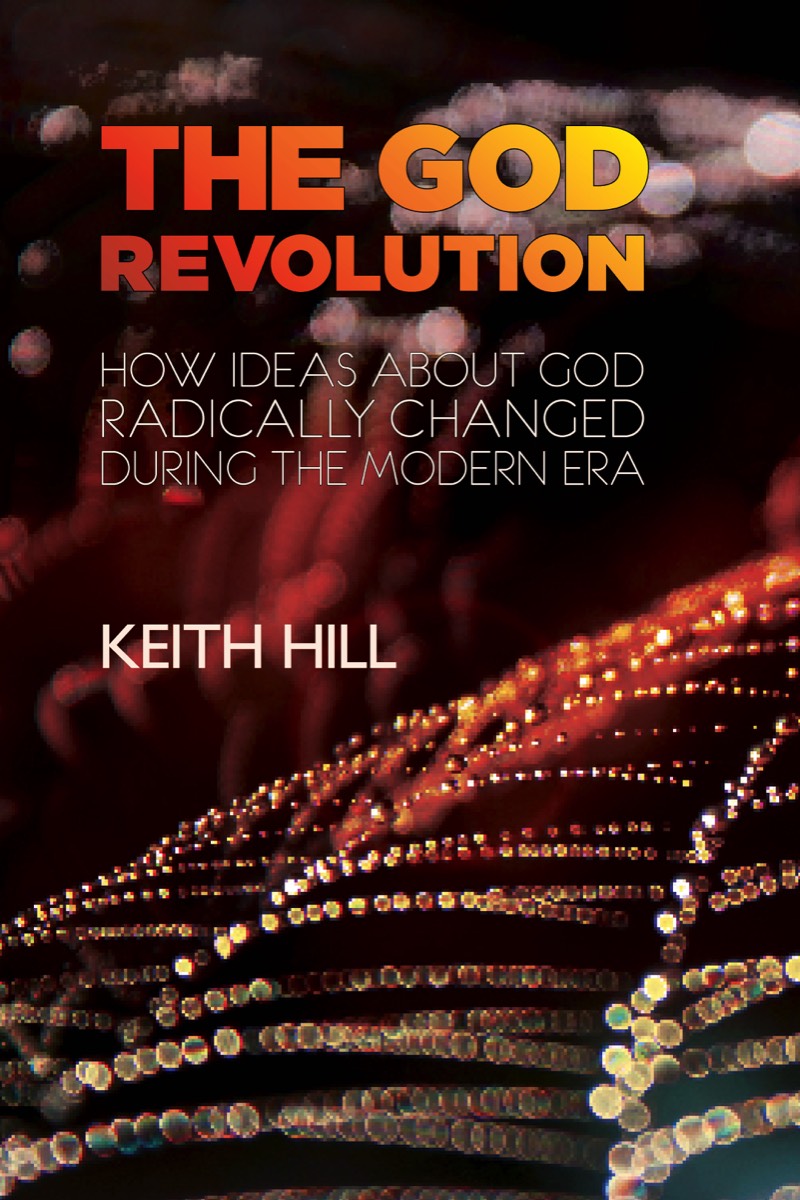CHAPTER ONE: AN IMPERTINENT PROPOSAL
"God is dead.” This famous statement has reverberated around the world ever since the nineteenth century European philosopher, Friedrich Nietzsche, first wrote it in 1882. By it he meant not that God had literally died, but rather that the Christian concept of God, as a supernatural being, that had long prevailed in Western culture was no longer valid.
In Also Sprach Spach Zarathustra (Thus Spoke Zarathustra, 1887) the work Nietzsche considered the greatest fruit of his genius (he was as certain of his own talent as he was of God’s demise), Nietzsche made Zarathustra, the ancient Iranian founder of the Zoroastrian religion, the mouthpiece of his new philosophy: “Whither is God? he cried. I shall tell you. We have killed him – you and I. All of us are his murderers.”
While Nietzsche made one of the most radical statements about God in Western culture, he was not alone. By the time he wrote those words numerous men and women of his era had already thrown themselves into a complete re-evaluation of God, of the nature of reality, and of Christian beliefs as the long-held bases of Western culture. In fact, for over two hundred years before Nietzsche, scholars, scientists, field researchers, and thinkers had been carrying out wide-ranging investigations into biology, geology, mythology, cultural history, philosophy, and religion, making discoveries and developing ideas and theories that led to an extensive reassessment of humanity’s knowledge of the world and the nature of reality as it stood at that time.
What made these discoveries and theories so influential was that they were not written up in specialized academic reviews for the learned few, but in book form that was easily accessible to the general public. That public responded by making many of these books best-sellers. The result was that their ideas produced immediate and long-lasting reverberations not just in the hallowed halls of academia, or in the lecture rooms of religious colleges, but in streets, cafes, and drawing rooms across the world. In order to taste the tenor of the time, and to place Nietzsche’s cry of “God is dead!” in its historical context, we need a little scene setting.
The nineteenth century was when human beings first started to experience what today we accept as normal – the sensation that daily life is speeding up. By 1800 the Industrial Revolution was well under way in Great Britain, with the textile industries being mechanized and other industries, such as mining, metalworking, and farming, adding automation to their labor. James Watts’ improvements to the steam engine, coupled with ready access to coal to fuel those engines, led to the establishment of factories. These in turn drew hundreds of thousands of workers off the land and into the cities. Gas lighting was introduced in 1812, allowing the burgeoning industries to work longer shifts and stimulating cities to develop a buzzing nightlife.
Buses providing public transport for workers were introduced to French cities in 1832 and to New York by 1836. The world’s first department store was opened in Paris in 1838. The first photograph of a person was taken in 1839, postage stamps were introduced in Great Britain in 1840, and the world’s first inner city subway opened in London in 1863. The Gatling gun was invented by Richard Gatling in 1862 to enable his fellow Americans to kill each other with modern efficiency during their Civil War, Alexander Graham Bell patented the telephone in 1876, and to complete the feeling of urban pressure, the modern world’s first urban serial killer, Jack the Ripper, did his worst in the streets of London in 1888. Completing this teaser list of accomplishments, in 1895 France’s Lumière brothers screened the first moving pictures, the modern Olympic Games was founded in 1896, and the British ensured the out-going century set the tone for the next by going to war with the South African Boers over gold, with the Nobel company (of Nobel prizes fame) providing the explosives. The Boers engaged in guerrilla tactics, hitting hard then vanishing into the countryside, to which the British responded with a scorched earth policy, incarcerating women and children in concentration camps, poisoning wells, and burning farms in order to starve out the Boer freedom fighters. So we can see that much of what we accept as the proper conduct of modern civilization was in fact set in motion during the 1800s.
Intellectually, the nineteenth century ushered in equally epoch transforming changes. In 1800 Western scholarly currents were dominated by Christian thought. All European countries shared a belief in one God, who was the God of Abraham, Moses, David, and Isaiah. They all agreed this God had caused a morally cleansing flood to purify the Earth, but had ensured the survival of animals and humanity via Noah’s ark. They agreed that their God sent down his son to Earth as humanity’s savior, and that the world was headed towards an eventual apocalypse, after which God’s son would return and rule on Earth. As a result, all European nations – along with many of the countries they colonized – shared a common history that extended from God’s creation of the world, through the present day, and into the apocalyptic future.
Europeans also shared the same divinely inspired Word of God, the Bible. This ensured everyone was grounded in the same religious stories: the creation of the world in seven days, the Fall and the subsequent expulsion of Adam and Eve from the Garden of Eden, Noah’s task of building the ark, the descent of all the Earth’s peoples from Noah’s sons, the parting of the Red Sea when Moses led the tribes of Israel out of Egypt, the Ten Commandments delivered to Moses on top of Mount Sinai, the subsequent warnings of the long line of Jewish prophets, and the sacrifice of God’s own Son in the form of Jesus Christ, sent to expunge humanity of its sins.
Of course this shared God, metaphysics, morality, history, and divinely inspired text didn’t stop Europeans from disagreeing over how the texts should be interpreted, resulting in the formation of schisms, the instigation of the Protestant Reformation, the establishment of the Lutheran and Anglican Churches, and the creation of sects such as the Quakers, the Pietists, and the Methodists. Nor did sharing the same history, texts, morality, and metaphysics stop Europeans from bullying or killing each other when it suited their purposes. Nonetheless, throughout all their disagreements and battles, they continued to share a belief in the one God, the one creation, the one Bible, the one history, and the one human destiny.
This certainty regarding what they knew of themselves and the world was such that the Irish Anglican Archbishop of Armagh, James Ussher, drawing on Biblical chronology, confidently calculated that the Earth was created on the evening of Sunday October 23, 4004 BCE.
It was also accepted that humanity was progressing upwards, morally, intellectually, and technologically. Or, at least, it was in Europe. Thus European culture was not only the pinnacle of all that had gone before, but as European countries became colonial powers they considered themselves the deserved rulers of the world’s “lesser” races. As the English historian, Thomas Henry Buckle, observed in 1857: “The great division between European and non-European civilization turns on the fact that in Europe man is stronger than nature, and that elsewhere nature is stronger than man, the consequence of which is that in Europe alone has man subdued nature to his service.”
Europeans were “stronger than nature” because they functioned according to reason, rationality being the leading characteristic of the civilized, while non-Europeans were ruled by their senses, which made them irrational and inferior. Therefore, according to European values, it was not only just, but in the best interests of the world’s uncivilized and irrational “lesser” races, that they be ruled by the “greater” Europeans.
Then, in the 1800s, all this certainty received a series of shocks. Almost two thousand years of Christian culture, and several hundred years of European smugness, was suddenly challenged. A succession of ground-breaking discoveries, each presented in equally ground-breaking books, questioned Europeans’ common understanding of humanity’s place, role, and purpose in the world, their knowledge of God and of the world He created, and their view of humanity’s moral and intellectual purpose. In just a handful of decades, the European world view was turned upside-down.
The books that embodied this challenge were predominantly scientific and scholarly in nature, presenting the public with the latest discoveries in the disciplines of biology, comparative religion, Biblical studies, psychology, archaeology, social sciences, philosophy, and philology. A historical survey is required in order to understand what was happening in these areas of study, and why these books should have had such an impact.
I’ll begin by considering the immense impact scientific thinking has had on Western thought and culture.


